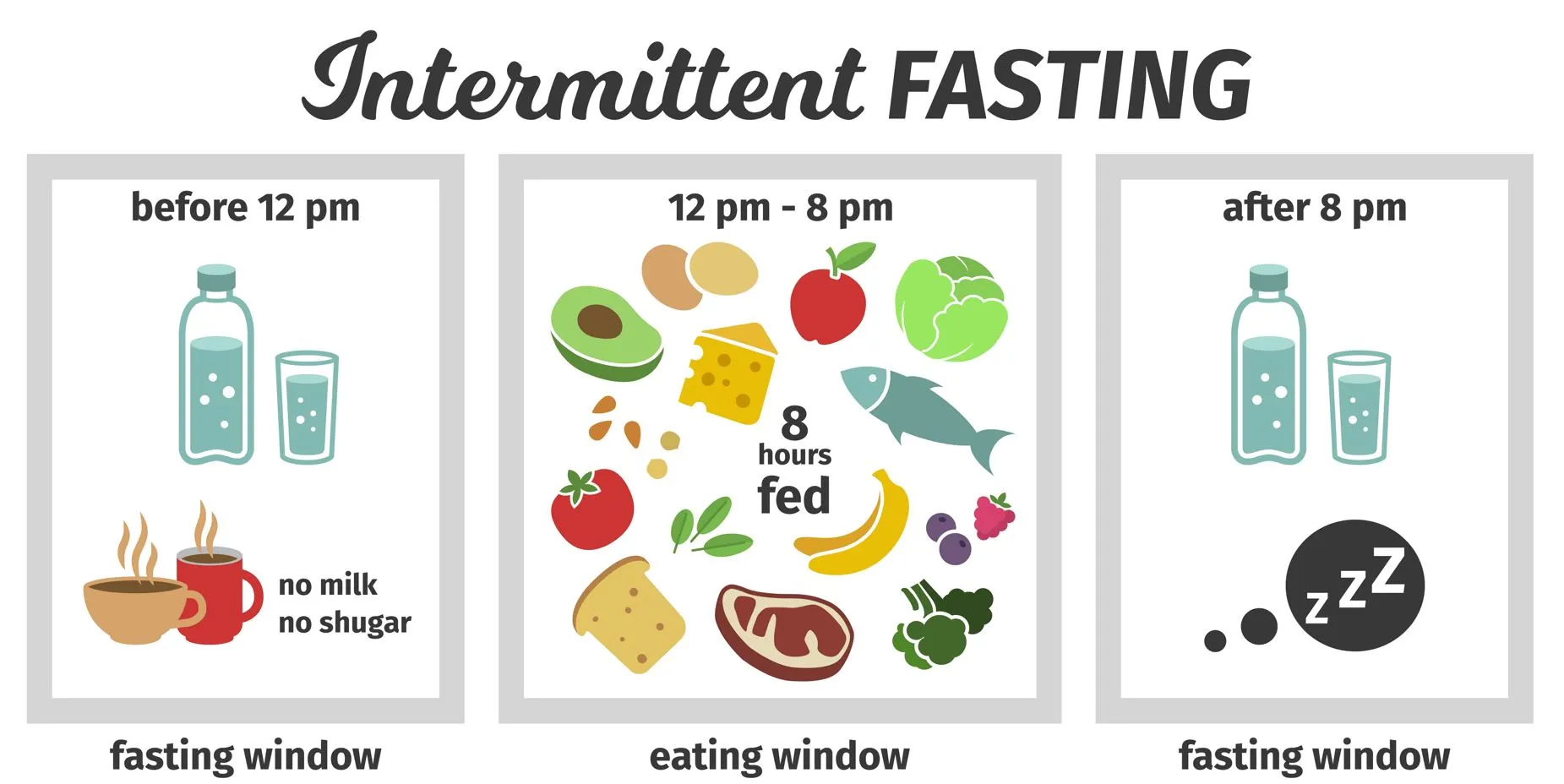
Intermittent fasting (IF) has become a popular approach to weight loss and metabolic health, but is it a safe and effective option for people with diabetes? While some research suggests that intermittent fasting may benefit blood sugar control, it also comes with potential risks. This article explores the benefits and safety considerations of intermittent fasting for diabetes management, providing tips for those who may want to try it.
What is Intermittent Fasting?
Intermittent fasting is an eating pattern that alternates between periods of eating and fasting. Some popular methods include:
- 16:8 Method: Fasting for 16 hours and eating during an 8-hour window.
- 5:2 Diet: Eating normally for five days of the week and consuming a reduced calorie intake (around 500-600 calories) on the other two days.
- Alternate-Day Fasting: Fasting every other day, where calories are restricted significantly on fasting days.
By creating extended periods without food, intermittent fasting can help the body switch from glucose to fat as a primary energy source. For those with diabetes, this shift could potentially improve blood sugar control and insulin sensitivity.
Potential Benefits of Intermittent Fasting for Diabetes
1. Improved Insulin Sensitivity
Intermittent fasting may help increase the body’s sensitivity to insulin, which can be particularly beneficial for people with Type 2 diabetes. Better insulin sensitivity means that cells can absorb glucose more effectively, reducing the amount of insulin needed to keep blood sugar levels stable.
2. Weight Loss and Metabolic Health
For many people with Type 2 diabetes, weight loss can improve blood sugar management. Intermittent fasting may lead to weight loss by reducing overall calorie intake and encouraging fat-burning. Lower body weight can help reduce insulin resistance, making it easier to control blood sugar levels.
3. Reduction in Inflammation
Some studies suggest that intermittent fasting can reduce inflammation, a common issue in people with diabetes. Chronic inflammation is associated with insulin resistance and other metabolic complications, so reducing inflammation may support overall diabetes management.
4. Lowering Blood Sugar Levels
During fasting periods, blood sugar levels tend to drop, which can help prevent the glucose spikes that people with diabetes often experience after meals. With proper monitoring, intermittent fasting may help create a more balanced blood sugar profile.
Risks of Intermittent Fasting for Diabetes
While there are potential benefits, intermittent fasting isn’t without risks, particularly for people with diabetes. Here are some safety considerations:
1. Risk of Hypoglycemia (Low Blood Sugar)
For people who take insulin or other medications that lower blood sugar, fasting can increase the risk of hypoglycemia, which can be dangerous if not managed properly. Symptoms of hypoglycemia include shakiness, dizziness, confusion, and in severe cases, unconsciousness.
2. Potential Nutritional Deficiencies
Restricting your eating window may lead to missing out on essential nutrients if meals aren’t well-balanced. Nutrient-dense foods are crucial for those with diabetes to maintain energy and overall health.
3. Increased Hunger and Overeating
Some people may experience intense hunger during fasting periods, which can lead to overeating or making poor food choices once the eating window opens. This can result in blood sugar spikes that counteract the benefits of fasting.
4. Impact on Mental and Physical Energy
For some, fasting can cause low energy, irritability, and difficulty concentrating, especially if blood sugar levels drop too low. This can impact daily activities and overall quality of life.
Is Intermittent Fasting Safe for Diabetics?
The safety of intermittent fasting for diabetes management largely depends on individual factors, such as the type of diabetes, medications, and overall health. It’s crucial to consult a healthcare provider before trying intermittent fasting, especially for those who:
- Take insulin or blood sugar-lowering medications
- Have a history of hypoglycemia
- Are pregnant or breastfeeding
- Have other chronic health conditions
For people with Type 2 diabetes who are not on insulin, intermittent fasting may be a safe and effective option if done carefully. Those with Type 1 diabetes, however, need to approach fasting with caution due to the increased risk of blood sugar fluctuations.
Tips for Safe Intermittent Fasting with Diabetes
If you’re considering intermittent fasting, here are some tips to help manage blood sugar levels and reduce potential risks:
- Consult with Your Healthcare Provider: Work with your doctor or a registered dietitian to adjust your eating plan and medication as needed.
- Monitor Blood Sugar Levels Frequently: Check blood sugar levels before, during, and after fasting periods. This will help you detect any changes and prevent hypo- or hyperglycemia.
- Choose Nutrient-Dense Foods: When breaking a fast, opt for balanced meals with high-quality protein, healthy fats, and fiber-rich carbs to support blood sugar stability and reduce the risk of overeating.
- Stay Hydrated: Dehydration can affect blood sugar levels. Drink water throughout the day, and consider herbal teas or electrolyte-rich drinks to stay hydrated.
- Start Slowly: Begin with shorter fasting periods to see how your body responds. For example, try a 12-hour fast before progressing to 16:8 or other more extended fasting methods.
- Be Cautious with Exercise: Exercise during fasting periods can sometimes lead to low blood sugar levels. Aim to exercise during eating windows or adjust your activity level to prevent drops in blood sugar.
- Adjust When Necessary: If you experience dizziness, fatigue, or signs of low blood sugar, consider breaking your fast early and adjust your approach accordingly.
Final Thoughts
Intermittent fasting may offer benefits for blood sugar management and overall health in people with Type 2 diabetes, but it’s not suitable for everyone. By consulting with a healthcare provider, carefully monitoring blood sugar levels, and choosing a balanced diet, people with diabetes can safely experiment with intermittent fasting. Remember, long-term success in diabetes management comes from sustainable lifestyle changes rather than short-term dietary strategies.

